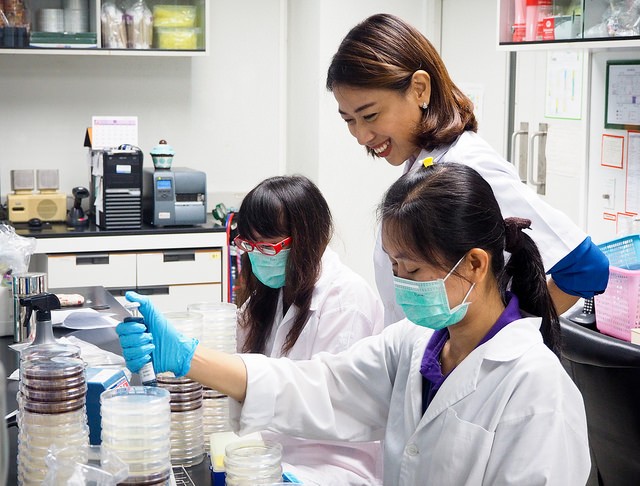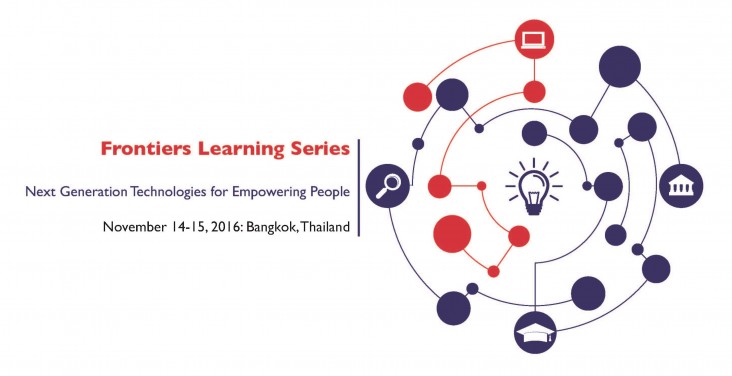Asia Regional
- History
- Our Work
- Lower Mekong Initiative (LMI)
- Newsroom
- Reports and Publications
- Transforming Lives
- Careers
- Partnership Opportunities
- Business Opportunities

The Asia-Pacific region has become a key driver of global politics and economics. Asia represents over half the world’s population, and is the most dynamic and fastest growing region in the world; the region experiences robust economic growth, rapid technological change and increasing interconnectivity. However, Asia also faces development challenges in areas like the environment and natural resources management, disaster risk reduction and infectious diseases that cross national borders. USAID seeks to increase the application of science, technology, innovation and partnerships to achieve, sustain and extend the Agency’s development impact in Asia. To this end, USAID supports a range of activities and events in Asia.
To receive news and updates about USAID’s STIP activities in Asia, please join the mailing list here.

Frontiers Learning Series
To catalyze increased engagement between the development and science and technology communities we have launched the Frontiers workshop series, focused on exploring emerging opportunities at the intersection of science & technology, innovation, partnerships, and international development.
Workshop: Next Generation Technologies for Empowering People (November 14-15, 2016):
Empowering marginalized communities and enabling responsive governments is one of the biggest challenges in the Asia Pacific region, and innovative applications of technology can provide solutions. More and more people will solve problems using e-government apps, voter information tools, open education platforms, secure mobile platforms, online business services and public safety databases. It is critical that Asia use the most appropriate technologies available to design and build systems of scale that can adapt to individuals and communities while mitigating social challenges facing governments.
Next generation technologies have the potential to serve as a tool for stability as well as an accelerator for growth and empowerment. This is especially true for migrant communities (including diaspora, trafficked, refugees and displaced populations) and ethnic or cultural minorities (including lesbian, gay, bisexual, transgender and intersex populations). Through the use of emerging technologies, innovative thinking, new partnerships and creative solutions, the rights of these individuals, families and target communities can be protected.
Join us as we explore how to take advantage of the multitude of opportunities emerging in this space while learning what this new reality means for development professionals, communities and governments. Visit the event website for more information and registration.
Financial Technology for Development (February 27-28, 2017):
The digital economy is rapidly evolving. This evolution is characterized by new modes of communicating and sharing financial information, conducting business and enhancing decision making with data. With the push of a button, inclusive electronic payments can eliminate the corruption, inefficiencies and security risks brought on by cash payments. New FinTech-enabled solutions driven by the increasingly ubiquitous and affordable mobile internet are reinventing financial services available to the poor. Making sense of this rapidly changing space can be overwhelming to development practitioners. This learning event will help sort out the fiction from the reality and offer practical advice to development professionals interested in leveraging this powerful revolution in digital development.
ASEAN-U.S. Science and Technology Fellows Pilot Program
The U.S. Government, in partnership with the Association of Southeast Asian Nations (ASEAN), launched the inaugural ASEAN-U.S. Science and Technology (S&T) Fellowship in April 2014. The fellowship places emerging science leaders from ASEAN countries into their home country government ministries to strengthen evidence-based policy making. In May 2015 the second cohort of 14 Fellows coming from 7 ASEAN Member States, began their fellowships and will be working on a range of national and regional priorities related to energy security, biodiversity, and fisheries & coastal management.
The Fellowship start date is Wednesday, June 1, 2016.
Please click here for more information.
ASEAN-U.S. Science Prize for Women
Deadline extended to April 11, 2016. Are you a female scientist focusing on sustainable energy in the ASEAN region? You may be eligible to win recognition and $25,000 USD for your research.
Apply for the second annual ASEAN-U.S. Science Prize for Women, awarded by USAID and the U.S. Mission to ASEAN, in partnership with the Association of Southeast Asian Nations (ASEAN) and UL. The Prize seeks to identify and recognize ASEAN-based, early to mid-career woman scientists less than 40 year of age whose research focuses on sustainable energy. Up to ten finalists will be identified and promoted, and one winner will receive $25,000 as well as separate provisions to attend an award ceremony at an ASEAN ministerial meeting in October 2016.
Qualified candidates can apply starting on January 25, 2016. Applicants should demonstrate excellence and creativity in scientific research, relevance to ASEAN’s regional goals, and a track record of mentoring, collaborating with and supporting young female scientists.
The Prize opens on January 25 and deadline to submit applications is April 11, 2016.
Learn more about the ASEAN-U.S. Science Prize for Women here [PDF].
Partnerships for Enhanced Engagement in Research
The Lower Mekong basin is rich in biodiversity. However, in many areas there are considerable knowledge gaps regarding existing biodiversity and the threats it faces. Through the Partnerships for Enhanced Engagement in Research (PEER) program, USAID is supporting three regional networks of scientists to better understand some of Asia’s most pressing biodiversity challenges.
Past Frontiers Learning Events
Transforming Finance Workshop (February 25, 2016):
The Transformational Finance Workshop focused on exploring recent development finance trends and methods to adapt development aid to the changing dynamics of the Asia region. The workshop focused on understanding the constraints to development investments while highlighting ways to mitigate risk and increase the probability of success. Through the workshop, participants were able to gain the knowledge and confidence to integrate innovative and successful tools and methodologies into current development objectives and activities. Topics explored included: investor concerns and needs in relation to development finance, core development finance instruments in the donor community, recent events and novel tools from the private sector and donor community, and how to include private sector partners and development finance in programmatic activities. Click here for the full agenda.
Harnessing the Data Revolution for Resilience Summit (D4R):
Ending extreme poverty is one of the world's biggest challenges. As we tackle this issue, it is important to build resilience at all scales—individuals, communities, cities and ecosystems—since resilience combines the ability to manage change and continue on a sustainable development path. At the same time, the world is currently producing unprecedented amounts of digital data as well as unprecedented growth in digital connectivity. These trends enable new ways of utilizing digital data to better understand the needs of communities in order to help them increase their collective and individual resilience. On May 10-11, 2016, USAID brought together entrepreneurs, innovators, development organizations, technology providers, donors and governments for a two-day summit focused on harnessing the power of digital data to transform the design, implementation and monitoring of international development programs to support resilience capacities at various scales. You can find materials from the summit and key takeaway notes here.
Scaling Impact Summit (March 2015)
The third event in USAID’s Frontiers series was an interactive summit focusing on how to more effectively scale innovations to achieve, sustain and extend development impacts. The forum brought together development professionals with academia, entrepreneurs and private sector partners to explore potentially game-changing innovations that address development challenges and ways in which we can most effectively partners to evaluate and accelerate adoption of promising innovations.
View the Scaling for Impact Summit agenda here. [PDF]
Review key takeaways from the Scaling for Impact Summit here. [PDF]
Mobiles for Development Forum (January 2015)
The M4D Asia Forum 2015, in partnership with FHI360, focused on discussing how to develop and sustain impactful mobile technology interventions to address development challengesdevelopment. The forum provided an opportunity for partnership building and experience sharing between the mobile technology and international development communities, including local technology firms, USAID implementing partners, donors and others who are developing or using mobiles for development. The Forum also highlighted the finalists and winner of our M4D Asia Award, which focuses on recognizing mobiles services in Southeast Asia with the potential to advance development outcomes. This was our second M4D Asia Forum and Award.
Integrating Mobiles into Development Projects Handbook
Review Key Takeaways from the 2015 Mobiles for Development Forum Read about the 2014 Mobiles for Development Award winners, 8villages and Open Institute.
Asia Urban Futures Workshop (October 2014)
This Frontiers event, in collaboration with UNDP, UN Habitat, and UN Global Pulse, brought the science and technology sector together with the development community to discuss the rising challenges and opportunities facing Asia as the result of rapid urbanization and climate change. The workshop centered on accelerating urban climate change adaptation by bridging science-to-action knowledge gaps and encouraging partnerships between city officials, technology innovators, development planners, academic researchers and implementers.
Review key takeaways from the Asia Urban Futures Workshop







Comment
Make a general inquiry or suggest an improvement.